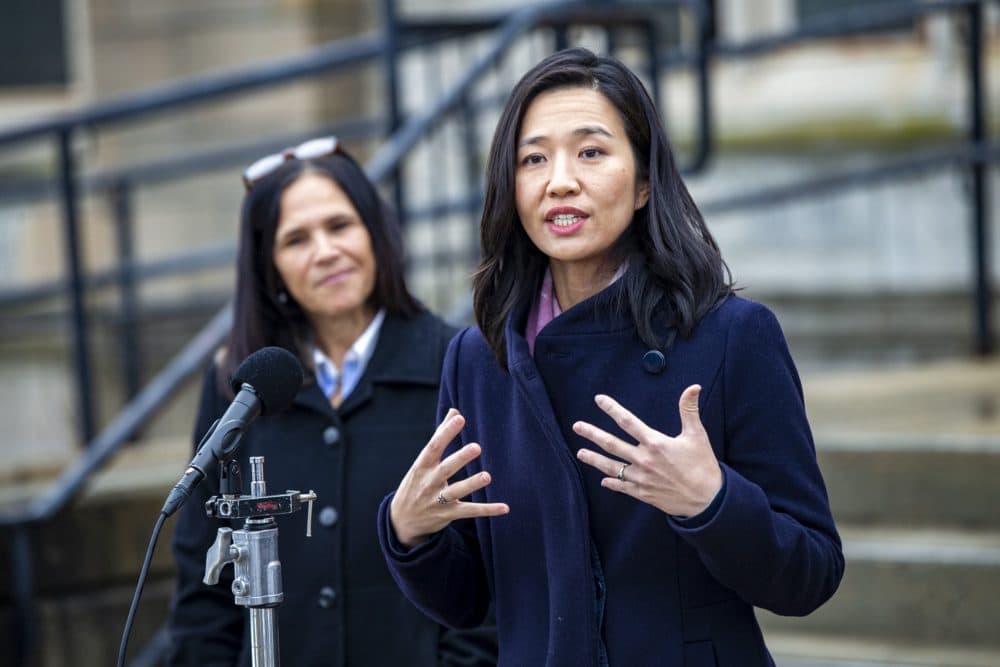Advertisement
Wu's plan would restrict 'targeted residential picketing'

Boston Mayor Michelle Wu, who has regularly encountered protesters outside her home, filed a proposed ordinance Monday to put new rules in place restricting demonstrations that target a particular residence.
The proposal would address what the mayor's office describes as targeted residential picketing, or "picketing, protesting, or demonstrating, with or without signs or sound amplification, that is specifically directed towards a particular residence or one or more occupants of the residence, and which takes place before or about the targeted residence."
Under her plan, such picketing would be restricted between the hours of 9 p.m. and 9 a.m. The proposal would not affect marches or protests that pass through residential areas and are not targeted at a particular home, and would apply to any targeted residence, not just the homes of elected officials.
"Boston has a strong legacy of activism, and it's important to uphold and protect the ability to speak out and advocate fiercely to keep our democracy strong," Wu said in a statement. "But in a moment of divided national politics, we can't normalize the harassment and hate spilling over into our communities. Boston must model not only bold, urgent policies, but also inclusive, empowering politics."
The mayor's office released statements of support for the proposal from Boston City Council President Ed Flynn and Gregory Long, acting commissioner of the Boston Police Department. Protests of Wu's COVID-19 vaccine policies have drawn demonstrators, and police, to Wu's home on a regular basis in recent months.
"This ordinance will add to our existing laws to stop harassment of residents in their private homes, while respecting the right to protest," Long said. "People have a right to privacy and peace in their homes."
The mayor's office said that targeted residential picketing that occurs late at night or early in the morning "increases the intrusion on the privacy and sanctity of the home, and is particularly harassing and detrimental to the sleep and well-being of families, including seniors and families with children."
Wu's office said that the U.S. Supreme Court, in Frisby v. Schultz, upheld a similar local ordinance in Wisconsin created after anti-abortion protesters "consistently targeted doctors who performed abortions, by repeatedly picketing outside their homes."
The order "will complement existing prohibitions against excessive noise, disturbing the peace, and blocking of streets and sidewalks through these clear guidelines around targeted residential picketing," according to the mayor's office.